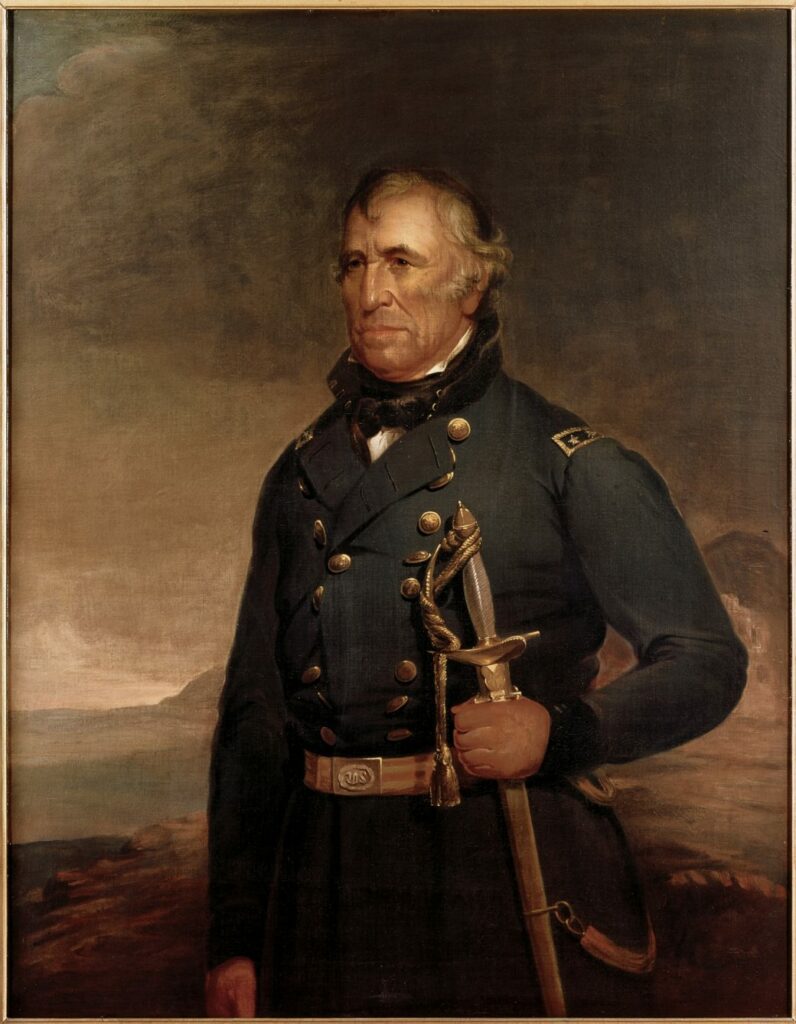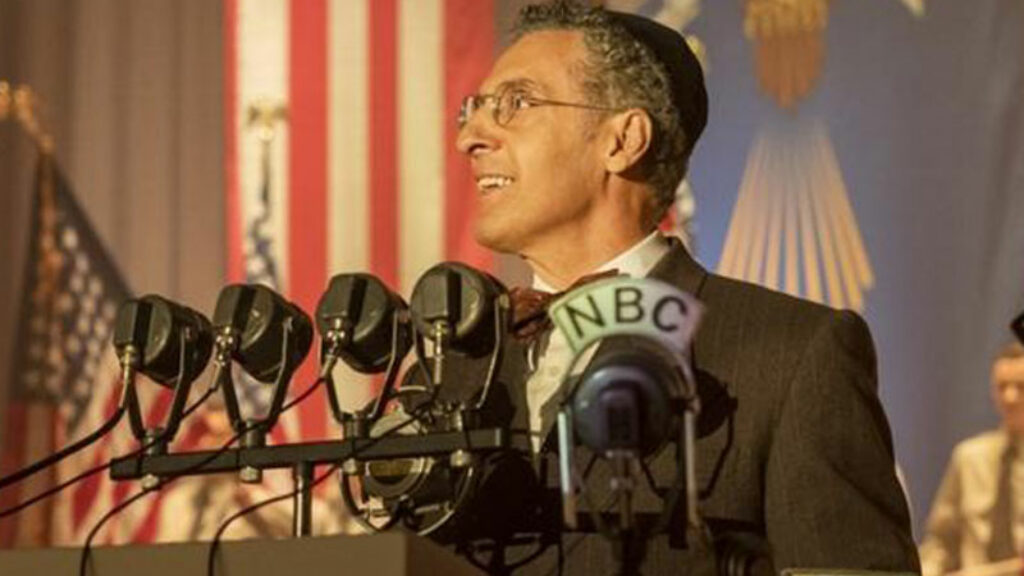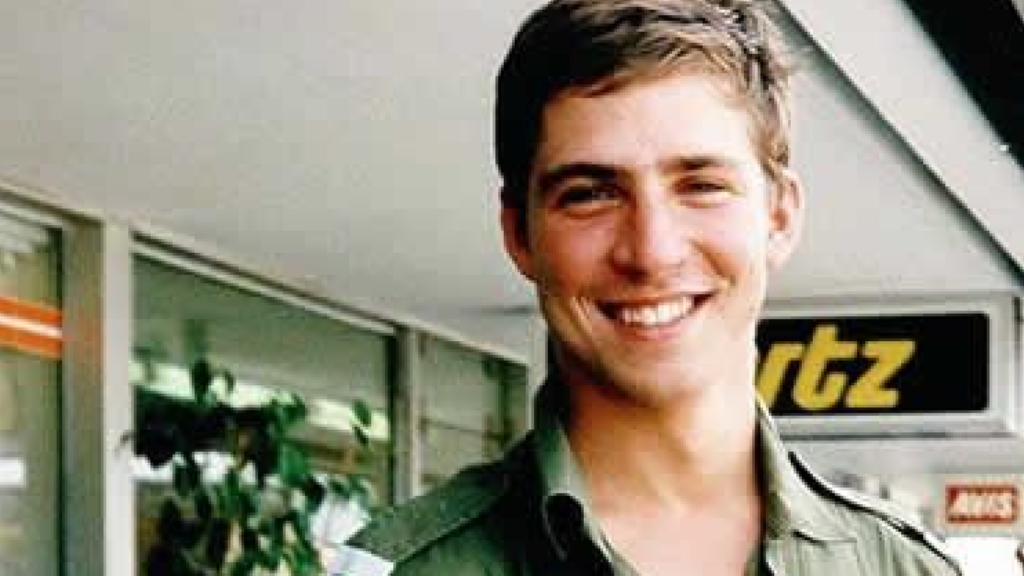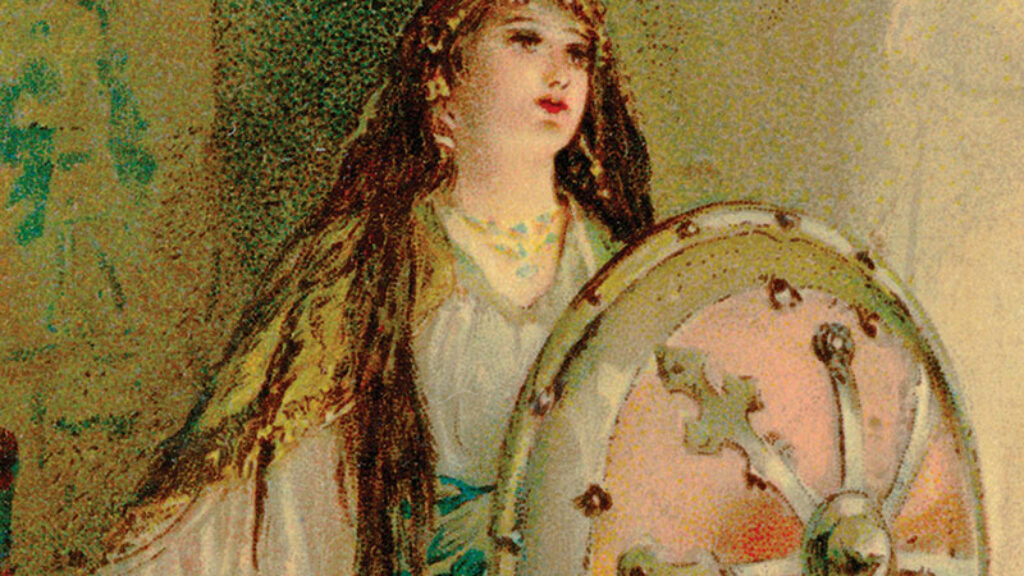Of Presidents, Rabbis, and Pews
Isaac Mayer Wise was the first rabbi to visit an American president. When he went to the White House in February 1850, Wise himself was not yet the distinguished president of the Hebrew Union College or the Central Conference of American Rabbis; he was just a 30-year-old pulpit rabbi from Albany, New York. Zachary Taylor, the Mexican War hero, had been president of the United States for less than a year when Wise, who was traveling south for his health, arrived in Washington, DC.

A Bohemian-born immigrant who had been in the US less than four years, Wise was eager to observe the American government at work. He could hardly have picked a more exciting moment. The debate over the Missouri Compromise was raging, and Henry Clay, John C. Calhoun, Daniel Webster, and William H. Seward were delivering some of their most memorable speeches. “Hour after hour and day after day,” reports James G. Heller, Wise’s biographer, “Wise sat in the gallery of the Senate . . . utterly and completely absorbed by what he heard.”
Wise owed his meeting with the president to one of the principal debaters—Seward—who was a friend of his from Albany, where the senator had been a lawyer for a number of years between his terms as governor of New York and his election to the upper house in 1849. Heller, in his rather rambling 800-page tome, provides no details about this encounter, but in his Reminiscences,Wise himself tells us a lot about it. When he and Seward entered the White House, they met a black man near the door and asked him, “Where is the President?” The man wordlessly pointed to a staircase:
We ascended the stairs. Seward knocked at a door; a voice within bade us enter. A fire was burning in the grate opposite the door, chairs stood on both sides, and a man sat in front of the fire, with his back to the door. Without turning around to see who it might be, he called out, “Step up closer, gentlemen; it is cold to-day.” We took our positions on either side of the grate, and I knew now that I was standing before the President. “Mr. President, I have the honor of introducing to you my friend from Albany,” said Seward. The President extended his hand, and asked us to be seated. . . . He said, “I suppose you have never seen a President of the United States, and for that reason you have paid me a visit.” “I beg pardon, Your Excellency,” said I; “I had the honor of speaking with your predecessor, James K. Polk. My object in coming has been to see the hero of Buena Vista.” Hereupon the old war-horse arose and bowed graciously. “Mr. Seward,” said he, “your friend seems to be very polite.” The old man became so talkative that I ventured to say the following: “Your Excellency, it has afforded me the keenest pleasure to form the acquaintance of the hero-President—a unique and magnificent personality. Permit me, however, to say that I believe you have never seen a person of my kind.” He looked at me dumfounded. “I have seen people of all sorts and conditions,” said he, “and would like to know what you mean.” “Certainly,” said I, “I am a rabbi.” “You are right; I have never seen a rabbi.” He now extended his hand a second time, and began the conversation anew. Seward, however, had to leave, and politeness demanded that I leave with him.
It is, of course, mind boggling to think that there was a time when one could just drop in on the president of the United States. But did the conversation really go this way? Did the young rabbi from Albany actually have the diplomatic skills of an unctuous, Old World courtier, or did he later embellish his story a bit? We have no way of knowing. It seems, however, that newspaper reports of the very fact that he had met with the president made Wise into an instant celebrity. The following day he had a long conversation with Daniel Webster, who was so impressed by his erudition that he offered to get him hired at Boston University. Wise didn’t lunge at this offer, but he did accept an invitation by telegram to speak at the Reform synagogue in Charleston, South Carolina, Beth Elohim.
Beth Elohim was the cradle of Reform Judaism in the United States, and its leaders were looking for someone to respond to the criticisms of a troublesome visitor to Charleston, Rabbi Morris Jacob Raphall. The Swedish-born Raphall had migrated from Great Britain to the United States in October 1849 to take up a position at B’nai Jeshurun, the New York Orthodox synagogue that was arguably the most important congregation in the United States at that time. Since the B’nai Jeshurun wasn’t ready to employ him fully until Passover, and Raphall needed to make some money in the meantime, he set out on a lecture tour. After notable successes in Philadelphia and Baltimore, he had made his way, in mid-February 1850, to Charleston.
Briefed by the more Orthodox locals about the religious situation in Charleston, Raphall gave a sermon on March 2, 1850, in their synagogue, Shearit Israel, in which he chastised the reformers at Beth Elohim for abandoning age-old Jewish beliefs. When Wise got to town, he delivered a set of rebuttal sermons. But the two men’s most memorable confrontation took place during a prearranged debate between Raphall and someone else, Gustavus Poznanski, the rabbi of Beth Elohim, which Wise observed from the audience—until he was drawn into the fray.
Here is Wise’s description in Reminiscences of what was for him the high point of the evening:
Raphall was being worsted, for Poznanski was a skilled dialectician, and remained calm; while Raphall grew excited, and declaimed violently. Finally Raphall grew angry, and glowed with holy zeal. Instead of arguing, he began to catechise. He asked the public, and finally myself personally: “Do you believe in the personal Messiah? Do you believe in the bodily resurrection?” I have never refused to answer a direct question; therefore I answered Raphall’s question with a loud and decisive No! This ended the drama. Raphall seized his books, rushed angrily out of the hall, followed by his whole party. He had apparently given up the fight. The reform party was satisfied with the result; the whole affair appeared ridiculous to me.
The “reform party” was indeed very satisfied with Wise. In fact, they were ready to hire him to replace Poznanski, who was preparing to resign. When Wise returned to Albany, they sent a telegram offering him the job. He almost took the position, but, after deciding against it, he learned the hard way that what he had said in Charleston didn’t stay in Charleston.
Back in February, Wise had left a bit of a mess behind him in Albany. He had succeeded in patching back together a divided congregation, but dissent was still festering. A petition calling for, among other things, the restoration of the prayers referring to a personal messiah and a return to the land of Israel had failed in late 1849. But Rabbi Raphall’s ongoing denunciations of Wise as a man unfit to be a rabbi had brought the opposition back to life. Its leader, the synagogue’s new president, Louis Spanier, may have had other reasons for turning against a rabbi he had once admired, but in his biography of Wise, Heller wrote that Spanier was “motivated chiefly by his feeling of outrage at Wise’s supposed doctrinal heresies.”
In the days leading up to Rosh Hashanah 1850, Spanier engineered a very questionable assembly of the congregation, which proceeded to depose Wise. Wise’s supporters took the matter to New York’s attorney general, who reaffirmed Wise’s right to maintain his position.
On Rosh Hashanah, Wise went to shul and attempted to lead the congregation. In Reminiscences, he described what happened next:
Everything was quiet as the grave. Finally the choir sings Sulzer’s great En Komokho. At the conclusion of the song I step before the ark in order to take out the scrolls of the law as usual, and to offer prayer. Spanier steps in my way, and, without saying a word, smites me with his fist so that my cap falls from my head.
This, wrote Wise, was “the terrible signal” that sparked a riot:
The people acted like furies. It was as though the synagogue had suddenly burst forth into a flaming conflagration. The Poles and Hungarians, who thought only of me, struck out like wild men. The young people jumped down from the choir-gallery to protect me, and had to fight their way through the surging crowd. Within two minutes the whole assembly was a struggling mass. The sheriff and his posse, who were summoned, were belabored and forced out until finally the whole assembly surged out of the house into Herkimer Street. “Louis Spanier,” said I to him, “there is the law to which I can appeal.” “I have a hundred thousand dollars more than you. I do not fear the law. I will ruin you.” I finally reached home, bowed with pain and inexpressible grief. The constable came and arrested me as the ringleader of a rebellious mob at a public service. Naturally, this had all been arranged beforehand; for this constable who arrested me was the gruffest and roughest in the city. He seized me by my coat, and thus led me to the police-station through the streets of Albany. Upon our arrival there, the whole rabble was present in order to feast their eyes on the sight of their rabbi appearing before court on New-Year’s Day; but their hopes were disappointed, for the police judge went into an adjoining room and received me there. My friends had informed him of what had taken place, and he dismissed me on my word of honor.
Spanier fought the law, but the law won. In May 1851 the mayor’s court determined that Wise had had every right to lead the Rosh Hashanah services and that Spanier had “committed an assault and battery on the minister in the pulpit in the presence of the congregation, and when he was told by the plaintiff that the arm of justice should reach him, he answered he was too rich to fear the law.” When the jury awarded Wise damages of $1,000 and costs, he made no attempt to collect. Nor did he return to his old post. After the Rosh Hashanah fracas, he led his supporters out of Beth El into a new congregation that he spontaneously named Anshe Emeth (Men of Truth).
The new congregation’s purchase of an old Baptist church set the stage for an important development in the history of American Judaism, certainly the most important ever to take place in Albany. Wise wrote in Reminiscences:
The church-building had family pews, and the congregation resolved unanimously to retain them. This innovation was imitated later in all American reform congregations. This was an important step, which was severely condemned at the time. The Jewish woman had been treated almost as a stranger in the synagogue; she had been kept at a distance, and had been excluded from all participation in the life of the congregation, had been relegated to the gallery, even as was the negro in Southern churches. The emancipation of the Jewish woman was begun in Albany, by having the Jewish girls sing in the choir, and this beginning was reinforced by the introduction of family pews.
Wise’s meeting with Zachary Taylor was not his last brush with his nation’s chief executive. He dropped in on Millard Fillmore, who succeeded Taylor after his sudden death in July 1850. The purpose of this visit, Wise tells us in Reminiscences, was simply to congratulate Fillmore on his ascension to high office. But Fillmore suspected more; he thought that Wise was angling for a position in the Library of Congress, which a number of influential Albanians had recently petitioned him to grant to Wise. Fillmore was in fact ready to do so. But Wise, having had a conversation with Daniel Webster the previous day that reminded him of his higher calling, politely told him that he wasn’t interested. American Judaism might have evolved somewhat differently if Isaac Mayer Wise had taken a government job in Washington and not decided, a few years after his meeting with President Fillmore, to leave Albany and head west to Cincinnati, where he founded Hebrew Union College, the first American Reform seminary. Rabbi Wise’s best-known visit to a president occurred in January 1863, weeks after General Ulysses S. Grant issued his infamous General Order No. 11 expelling the Jews from his military district in Tennessee, Kentucky, and Mississippi—not all that far from Cincinnati. En route to Washington to complain, Wise learned that President Lincoln had already rescinded the order, but he continued on to join a delegation of rabbis and laymen to thank Lincoln for having done so. (There’s a fascinating story here too; my late and lamented colleague Stuart Schoffman told it three years ago in a surprising piece called “Was Lincoln Jewish?”)
Comments
You must log in to comment Log In
Suggested Reading

Could It Have Happened Here? The Implausible Plotting of The Plot Against America
Was America in 1940 primed for an antisemitic leader, as Roth and his adapters would have us believe?

A Lone Soldier
Every year, when Yom HaZikaron, Israel’s memorial day, rolls around, the author thinks of an idealistic college student named Alex Singer who became a lone soldier in the IDF.
In the City of Killing
The Kishinev pogrom originated in a rumor, widely disseminated and believed around the area that Easter, that the imperial authorities had given permission for several days of uninterrupted violence against the Jews.

And One for All
Adam Sutcliffe is an intellectual historian, not a theologian or a philosopher, so he doesn’t try to answer the question of what purpose Jews serve in the world, but he has a lot to say about the attempts to do so that Jews and non-Jews have been making for ages.
Ilan Troen
Allan: a wonderful and entertaining story told so well. Thanks for the enlightenment and the pleasure.
Ilan
Lewis Bernstein
No one was debating the Missouri Compromise in 1850 since it occurred in 1820. The Compromise of 1850 was 5 laws passed in September 1850 that dealt with the issue of slavery and territorial expansion. In 1849 California requested permission to enter the Union as a free state, potentially upsetting the balance between the free and slave states in the Senate. Senator Henry Clay introduced a series of resolutions on January 29, 1850, in an attempt to avert a crisis between North and South. As part of the Compromise of 1850, the Fugitive Slave Act was amended and the slave trade in Washington, D.C. was abolished. California entered the Union as a free state and a territorial government was created in Utah and an act was passed settling a boundary dispute between Texas and New Mexico which established a territorial government in New Mexico.